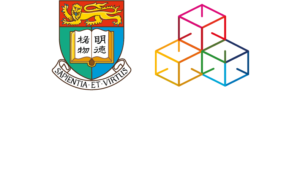Ms. Tiffany Lee
Assistant director of corporate responsibility and sustainability, The Hongkong and Shanghai Hotels, Limited
Alumni Profile
What are the key differences in your perception when someone expresses interest in ‘studying ESG’ versus ‘learning about sustainability’ and its potential impact on their career path?
The word ‘sustainability’ is general because it is meant to be. I think sustianbility is just a mindset, a way of thinking, a of approaching things. And I think that this mindset can exist anywhere. You don’t necessarily need specific skills or skill sets to ‘do good’ in sustainability, per se. ESG is the application of this type of mindset and thinking within a corporate setting, and it encompasses so many things. You realize that ESG can exist everywhere if you look at the reporting or disclosure requirements from the Hong Kong Stock Exchange. As a listed company in Hong Kong, you’re required to report on everything from the environment—your energy use, your water use—all the way to people. What are your policies on ensuring good labor conditions and the well-being of your employees? And then everything related to the community, too. So, if you think about all the different departments and processes that you touch on as an ESG professional, it’s vast.
How can the benefits of a program like the SLGP be explained to demonstrate its relevance to all functional roles within the organization?
It’s important to be able to translate the concept of sustainability into corporate language, and I think this programme allows that. The concept of sustainability, things like greenhouse gas emissions and why we need to reduce them—those foundations are set from the very start. But the true value of this programme is then how do you communicate the value of those concepts to corporate leaders, which is so crucial when, let’s say, you’re working in an in-house role and you’re convincing the chief finance officer to put budget towards equipment upgrades so that we can reduce our energy consumption. I think that is something that is very valuable. It also gives you the foundation of international frameworks, so you gain a global reference. So when people are talking about Net Zero, for example, what are the frameworks that you can pull out and reference? I do that every day still. There’s no hospitality standard, so for a lot of these topics, because we are still developing our own standard, what I need to do is go through my dictionary of these frameworks and these global standards that I’ve learned in this programme and adapt that.
How can NGOs, benefit from having employees participate in a program like the SLGP? What specific advantages might it offer to the third sector?
Our team works with a lot of NGOs. As part of our whole sustainability strategy, we have an entire pillar dedicated to working with the community, how we can give back. We work with a lot of NGOs. There are NGOs that we work really well with, and then there are some where the partnership is a bit more challenging. I think the key difference is whether or not they can translate the value that they bring to the corporate world in corporate terms. At the end of the day, the value that the NGOs bring is undeniable, but we have to communicate that beyond just the sustainability team. So, for someone looking to work in an NGO, taking this programme and understanding what corporations view as valuable and how we can translate these initiatives into value that corporations understand is extremely valuable.
What are your thoughts on how the dialogue and terminology in the ESG and sustainability space are changing in response to some of the backlash? Does this trend discourage you?
I think this is just a point in time where people or communities are reacting very strongly to certain phrases or words. But I think, fundamentally, with all the research that’s coming out, this is a general direction that we all need to take, whether you frame it as sustainability or not. I think that’s where the world is heading. Resource efficiency, for example, is a fundamental principle of sustainability, and it’s not different from the fundamental principles of business. I think whether or not those principles exist in certain departments or specific roles in companies, the general direction is still the same.
What is one key observation or one major takeaway that participants typically report from the program?
I always go back to the very foundational concepts: how to make sure the company thrives financially but also consider sustainability and society. If you are interested in joining this programme, make use of and take all those foundational skills with you, but also be prepared to work in a space that is always changing. You really have to think big because, as someone working in sustainability, you are a change-maker. The corporate world hasn’t existed with the consideration of sustainability for the last hundreds of years, so as a sustainability practitioner, you are there to change minds.


